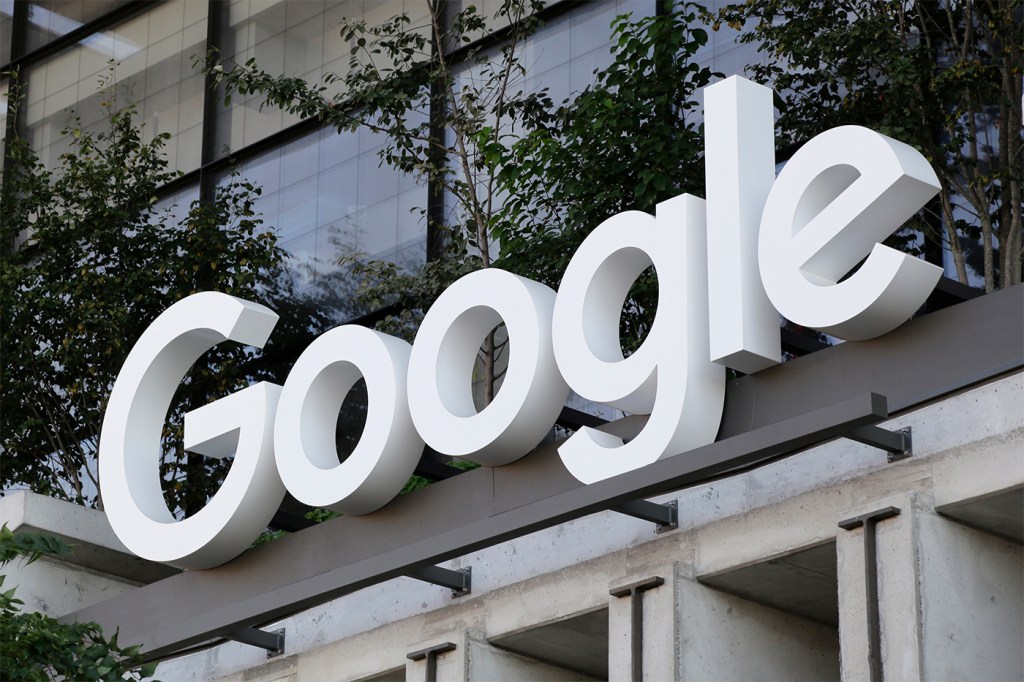Google monopoly trial shows appetite for enforcement on Big Tech, antitrust experts say

It’s so associated with web searching that it’s become a verb.
Now the government is suing Google, accusing it of abusing its power as a monopoly.
The case opened last week.
The case is complex. It involves Google’s search engine business — which has amassed 90% of the search engine market in the United States and 91% globally, according to Similarweb, a data analysis firm. It also involves its advertising business.
It is also not likely to be the most transparent trial. Google is claiming much of the testimony contains proprietary information and thus can only be held behind closed doors. A 10-week trial calendar also makes constant mainstream press coverage unlikely.
Yet, the case is hugely important.
It is “the first monopoly trial of the modern internet era,” according to the New York Times, and is being compared with the 1998 case against Microsoft in which a judge found the corporation violated antitrust laws.

“It’s a big deal that now it’s happening,” says Elettra Bietti, an assistant professor at Northeastern’s School of Law and Khoury College of Computer Sciences. Bietti also practiced antitrust law in Brussels and the United Kingdom and litigated patent law in the pharmaceutical and technology industries.
Bietti noted that the Federal Trade Commission and state attorneys general first investigated Google search for search bias roughly a decade ago but closed the case. She also noted that this case also involves web search — a service most consumers understand.
“The trial definitely is an indication that something has changed in the policy landscape and that there’s a different kind of appetite in the public for more proactive enforcement against Big Tech,” Bietti continues.
So, what are the overarching things you need to know as lawyers battle it out in federal court?
Northeastern Global News spoke with antitrust experts John Kwoka, the Neal F. Finnegan Distinguished Professor of Economics, and Bietti to find out.
What to Prove: the Justice Department
Kwoka — who also served as chief economic adviser to the chair of the FTC, Lina Khan, last year — says that the government has to prove two things in this case.
First, it must prove that Google has market or monopoly power, or the ability to manipulate the price of an item in the marketplace by manipulating the level of supply, demand or both.
Second, the government has to prove that Google has maintained its monopoly by engaging in exclusionary anticompetitive acts. For example, if they extend their market power to the extent that they use it to leverage into a different business.
“Your idea is all yours, but if you start to do things to defend it that don’t fall into normal business practices relating to competitors and you try to get control of another market, leveraging your dominance into something else: it is where Microsoft got into trouble and where all the tech companies now are being scrutinized,” Kwoka says. “The government is not trying to take down Google, it’s trying to prevent Google from taking down competitors to it.”
Bietti says that the second issue presents the most salient point of the case, seeing the case as similar to the Microsoft case.
“The main question in that case was whether Microsoft was bundling access to the browser and Windows and a variety of different services in ways that were excluding potential competitors,” Bietti says. “We’re seeing something very similar being argued in the Google case … they’re (both) already monopolists, there’s not necessarily a question here about whether or not that monopoly was achieved lawfully, so, the primary question that is being examined is whether Google has been maintaining their monopoly unlawfully.”
The trial definitely is an indication that something has changed in the policy landscape and that there’s a different kind of appetite in the public for more proactive enforcement against Big Tech.
Elettra Bietti, an assistant professor at Northeastern’s School of Law and Khoury College of Computer Sciences
Google’s Case
Google is expected to fiercely contest both that it has market power or a monopoly and that its dominance is based on illegal practices.
In regards to whether it has market power, Kwoka says Google will say that the mere presence of competitors such as DuckDuckGo and Microsoft Bing demonstrates that the company does not.
Furthermore, Google can argue that consumers drive Google’s dominance — not market power.
“The (Google) search engine is good, there’s just no doubt about it,” Kwoka says. “They can say, ‘We don’t force anyone to use it, they use it because they want it, it’s a good product. If they want Bing, or DuckDuckGo, they can download it and click it.’”
The “consumer choice” argument is also to be made in defense of Google’s practices. Google will argue that its size and scope is demanded by customers wanting a “seamless” experience, Kwoka predicts. For instance, Google could say customers want an advertisement service that is integrated with Google because Google provides the best search experience.
Google may also argue that it is a victim in the case.
“They could argue that by tampering with the system, the Justice Department is giving an unfair advantage to competitors, and that is antithetical to antitrust law: the government shouldn’t be gaming one competitor over another,” Kwoka explains.
Arguments for the Justice Department and states
Kwoka said that the government, as indicated in its complaint and case testimony, intends to argue that Google’s agreements with companies like Apple, Samsung and Mozilla to be the default search engine on their products crossed the line into exclusionary practices designed to protect market share.
But where do you draw the line between legitimate business practices and anticompetitive acts?
Kwoka says a key question is whether the business practices benefit consumers.
That may be a tough sell for Google.
“There is no way to make a credible argument that if I have an iPhone or Mac and only have one search engine, that it benefits consumers,” Kwoka says. “It doesn’t benefit consumers, it shuts out competitors,” Kwoka said.
He compared a sponsorship agreement — say for a beer company to sponsor the Boston Red Sox — with an exclusivity agreement. “It’s one thing to pay for ad space, it’s another to pay for nobody else to be an advertiser,” Kwoka continues.
Kwoka said the government also plans to introduce internal Google documents that “come pretty close to saying (Google is) trying to protect their market share.”
“Some of them, I have to say, seem like they may be difficult for Google to explain away,” Kwoka says. “They make it sound as if they believe their default presence is incredibly valuable to them, and have labored long and hard to maintain exclusivity.”
The government will further argue that shutting out competitors has stifled innovation.
“The theory is very simple: a monopolist doesn’t have the same incentive to innovate,” Kwoka says. “Most disruptive innovations come from outside of larger firms because the smaller firms have more to gain.”
Arguments for Google
That’s not to say that it will necessarily be an easy case for the government to prove.
One challenge for the government is that Google — and possibly the judge — will press its lawyers to describe what the world would look like if Google had competition. It is a hypothetical but important question.
“It’s hard to know what the world would look like if there had been more competition in search and advertising,” Kwoka says.
Kwoka predicts the government will try to answer by pointing to precedent.
“When AT&T was broken up, it led to a huge increase in services,” Kwoka says. “But nobody could have foreseen what the breakup of AT&T would do at the time.”
The government also must respond to the argument that Google’s services are helpful to consumers because they want a seamless experience — a question Kwoka is curious to see argued.
Bietti also notes that the government has the challenge of attempting to legally intervene in a famously unregulated market.
“I think it’s tricky,” Bietti says. “I think there are a lot of questions about how U.S. law fails to recognize the types of power that Big Tech companies have.”
“Ultimately, when you’re thinking about Big Tech markets, they are opaque markets and all the documents are in the hands of the tech players,” Bietti continues. “ A lot of the evidence is not available to the government to prove things.
There is also the vast amount of resources at Google’s disposal.
“To me it seems like a very strong case against Google, but the reality is that the FTC and DOJ are severely understaffed, and don’t have the money Google has,” Bietti says. “There is reason to be skeptical about what will happen.”
What will happen?
Which gets to the ultimate question: What are potential outcomes of the case? Google selling some of its apps? Fines? Limits on Google’s behavior?
It’s hard to say with certainty, but it helps to look at the Microsoft case.
In 2000, a judge ordered Microsoft to break up. The company successfully appealed, however, and then settled with the Justice Department.
Kwoka says that the Microsoft case may not be something the government wants to emulate.
“In the past the government has too often settled for trying to change the company’s behavior by so-called behavioral remedies,” Kwoka says. “These forbid certain practices, or require the company to do certain things, but almost always fail since the companies always have an incentive to work around them, and they usually succeed.”
Rather, Kwoka has written about the need to consider possibly breaking up tech companies, for example, Google splitting off its Android operating system.
“Only then will they not have an incentive to work around these rules about their behavior,” Kwoka says. “If separated, they will behave as independent companies.”
But perhaps even more unknown are the implications.
Bietti wonders whether the case could influence the future of the next frontier in Big Tech — artificial intelligence, which involves the same main companies as players.
And the case certainly seems to signal further scrutiny of the industry. The FTC sued Amazon on Tuesday.
Cyrus Moulton is a Northeastern Global News reporter. Email him at c.moulton@northeastern.edu. Follow him on Twitter @MoultonCyrus.






